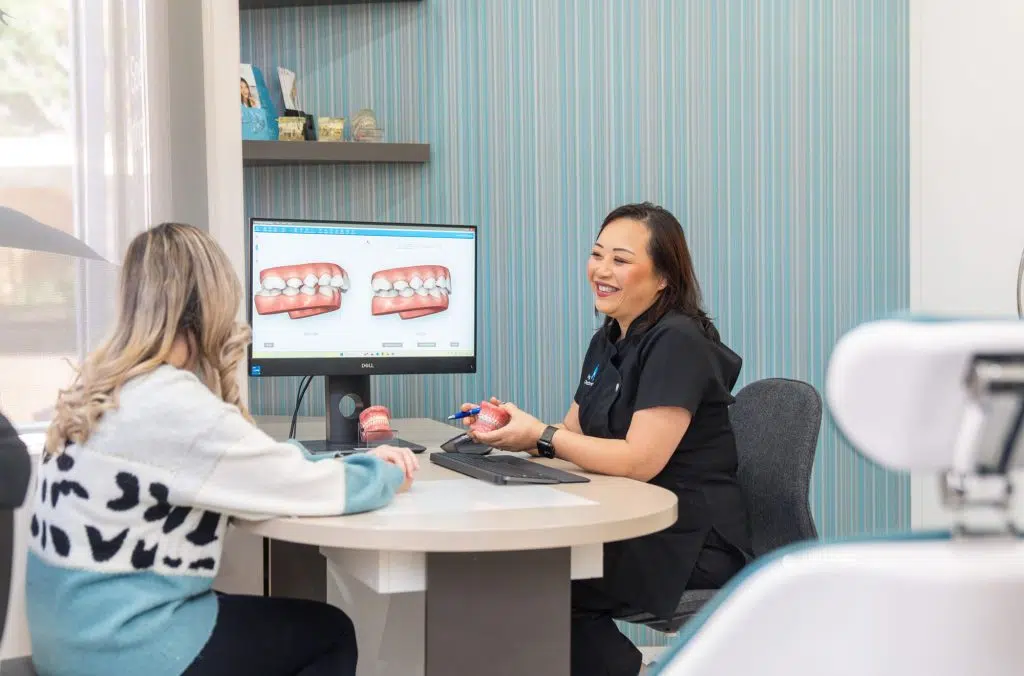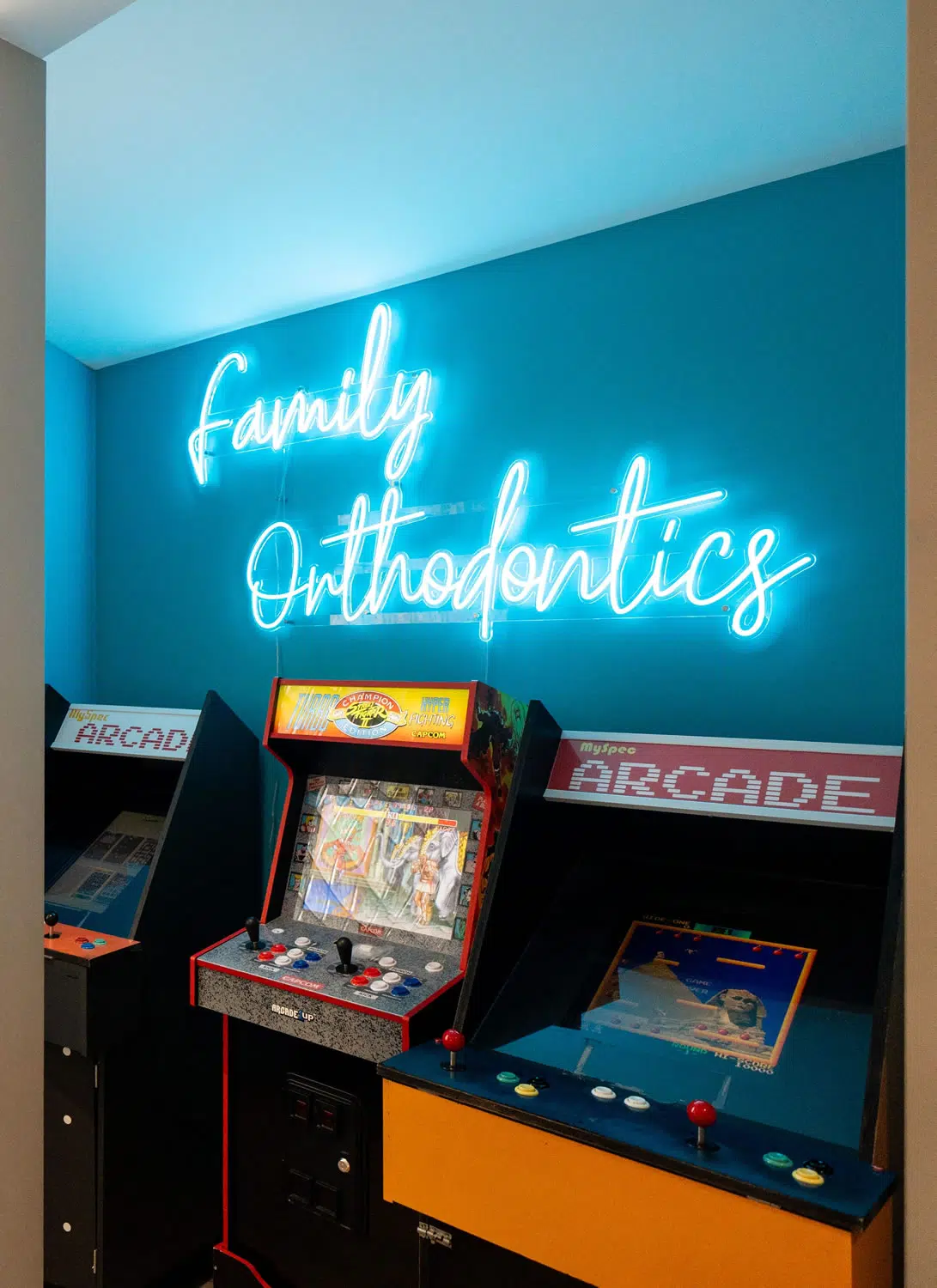Interceptive orthodontics
Interceptive/Early Intervention Orthodontics
Interceptive orthodontics focuses on identifying and treating developing dental and jaw problems while your child is still growing.

Interceptive orthodontics is an early phase of treatment typically performed between the ages of 7 and 11, before all the permanent teeth have erupted.
Rather than waiting for problems to fully develop, early intervention can help to:
Correct harmful oral habits (such as thumb or finger sucking)
By guiding growth early, we can often reduce the need for more complex treatment later. We call this “half-braces” or “early-braces” which gives our young patients to grow into their best smiles.
It’s not about rushing into full braces, it’s about setting up your child’s mouth for long-term success.

Children’s bones are still flexible and growing, which makes early treatment effective, comfortable, and adaptable. Interceptive orthodontics can:
In some children, a narrow palate (upper jaw) may affect tooth eruption and bite problems.
Expansion of the palate at a young age is often easier and more stable than in adolescence or adulthood.
In certain cases, we may also work in collaboration with your child’s GP or ENT specialist if concerns such as mouth breathing, allergies, or enlarged tonsils/adenoids are contributing to airway or growth issues.
Early treatment often involves simple, child-friendly appliances designed to gently guide growth and alignment. These may include:
Every plan is tailored to your child’s needs, and we’ll explain all options clearly before starting.
Interceptive orthodontics is usually followed by a monitoring phase while the rest of the adult teeth come through. During this time:

Your child might be a candidate for interceptive orthodontics if you notice:
The Australian Society of Orthodontists recommends an initial orthodontic check-up by age 7, even if no obvious issues are present.

One of Sydney's highest rated orthodontists with 100+ ![]() reviews on Google Reviews.
reviews on Google Reviews.
You don’t need a referral to see our specialist orthodontists.
Book online or call our Liverpool or Carlingford practices to arrange a consultation, we are here to answer your questions and guide you through your options. Referrals are always welcome.
Please note filling in this form doesn’t guarantee your desired date or time. One of our team members will be in touch to confirm your appointment.